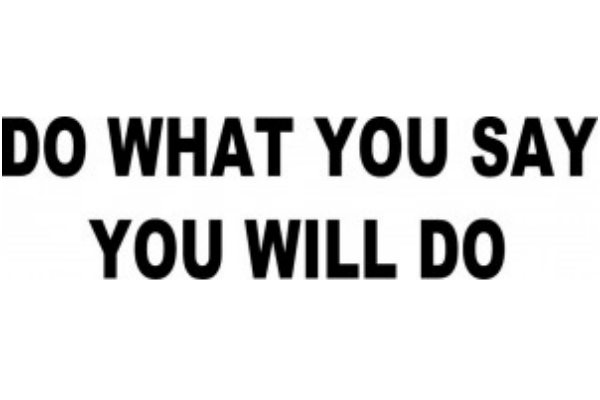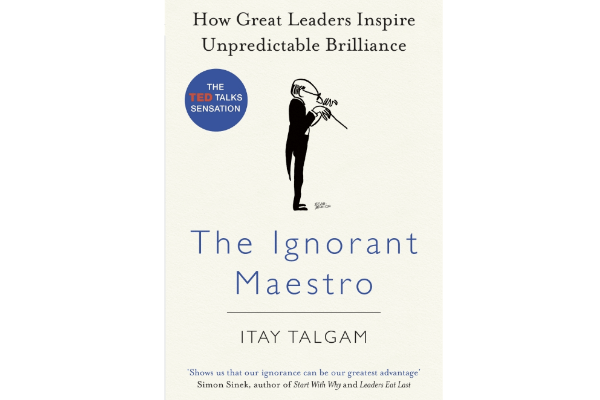“Who you are speaks so loudly I can’t hear what you’re saying.” – Ralph Waldo Emerson
In our experience facilitating leadership development journeys across organizations, there’s one trait that consistently emerges as a non-negotiable: credibility. Not charisma. Not strategic genius. But the simple, consistent alignment between what a leader says and what they do.
The acronym DWYSYWD – “Do What You Say You Will Do” – might sound basic, but it is at the core of credible leadership. When leaders fail to walk their talk, trust is eroded, engagement drops, and the ripple effects are felt across culture, performance, and retention.
We often begin our leadership workshops with a reflective prompt: “How consistently does your video match your audio?” This isn’t a trick question. It’s a wake-up call. Because the truth is, most leaders don’t intend to break their word – they just underestimate the cost of doing so.
Let’s unpack what this means through real-world leadership behaviors:
- You expect your team to log in at 9 AM sharp. Do you?
- You promise a team member feedback by Friday. Does it reach them on time?
- You assure a client of a proposal by EOD. Is it sent?
- You tell your child you’ll be home by 7 PM. Are you?
In our leadership engagements, we’ve seen how micro-lapses in consistency build up over time. Teams notice. Even if they don’t speak up, they adjust their expectations – downward.
Credibility, like trust, is built in drops and lost in buckets.
Stephen Covey introduced the concept of the “Emotional Bank Account”: every positive interaction is a deposit, every broken promise a withdrawal. At FocusU, we often extend that analogy to what we call the “Credibility Bank Balance.”
Every time you follow through, you earn credit. But each missed commitment, no matter how small, chips away at that balance. And once overdrawn, rebuilding it takes time, effort, and visible change.
In our experience with cross-functional leadership teams, we often see a breakdown of trust stemming from buffered commitments. For instance, when sales targets get inflated at each managerial level to “cushion risk,” it may safeguard one layer but damage credibility across others. The eventual result? A demoralized front line, missed numbers, and higher attrition.
It is not that leaders mean to deceive. But the moment they start over-promising or under-delivering, they lose their teams.
As Jim Kouzes and Barry Posner state in “The Leadership Challenge”: “If you don’t believe in the messenger, you won’t believe the message.”
Credibility doesn’t come from grand gestures. It is forged in the quiet, everyday choices:
- Showing up when you said you would.
- Following through on commitments even when inconvenient.
- Owning up when you miss a deadline, instead of making excuses.
We have noticed that some of the most respected leaders are not those who say the most. They are the ones whose word carries weight, simply because they honor it.
Gandhi’s timeless statement, “My life is my message,” is more relevant today than ever. His leadership wasn’t just rhetoric. He embodied his values – visibly, consistently.
In corporate settings, we often encounter leaders who articulate values fluently. But values that aren’t modeled don’t inspire. In fact, they breed cynicism. Teams quickly sense when there’s a mismatch between stated values and lived behaviors.
What can organizations do to encourage DWYSYWD?
Table of Contents
- Embed accountability in culture: Make it safe to give feedback upwards. When team members can hold leaders accountable, credibility becomes a shared value.
- Tie commitments to follow-through: Track team-wide behaviors around commitments – and include these in performance and feedback mechanisms.
- Celebrate quiet consistency: Recognize leaders not just for big wins, but for honoring their word.
- Invest in self-awareness: Most leaders don’t realize how often they unintentionally break commitments. Leadership coaching, 360-degree feedback, and structured reflection can close that gap.
We often remind leaders: you don’t have to be flawless. But you must be consistent.
Here are five reflective questions we offer in our leadership programs:
- Do I treat my calendar promises with the same seriousness as a client deadline?
- When I miss a commitment, do I proactively communicate and make amends?
- Am I more likely to say “yes” in the moment, and regret it later?
- Do my team members feel confident relying on my word?
- What’s one small behavioral change I can make to strengthen my credibility?
At the heart of leadership is the responsibility to influence and inspire. And influence, in the long run, is a function of credibility. It isn’t about perfection. It’s about integrity. It’s about honoring your word even when no one is watching.
So, as you lead your teams, remember this simple mantra: Do what you say you will do.
Because your words matter. And your actions matter even more.










